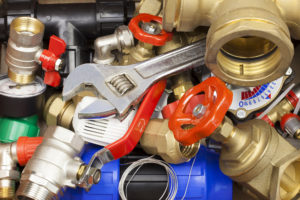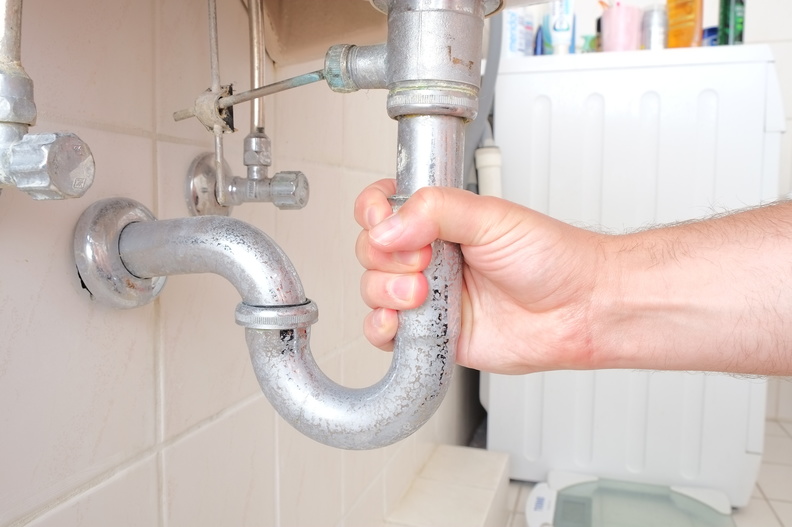Emergency Plumbing Fixes to Use Until Specialist Help Arrives
Emergency Plumbing Fixes to Use Until Specialist Help Arrives
Blog Article
They are making a number of good pointers on Expert Tips for Emergency Plumbing Repairs overall in this article below.

Pipes emergencies can strike at any time, causing stress and anxiety and prospective damage to your home. Whether it's a burst pipeline, a stopped up drain, or a leaky tap, understanding how to take care of the circumstance till an expert plumber gets here can save you from more problems. This article supplies important emergency pipes suggestions to aid you alleviate damages and gain back control throughout a plumbing situation.
Shut off the Water
The initial step in any kind of plumbing emergency situation is to shut off the water. For localized problems, such as a leaking faucet or commode, turn off the shutoff near the component. In the case of a significant leak or ruptured pipe, situate your home's primary water shut-off valve and transform it off immediately. Recognizing the location of these shutoffs beforehand can conserve important time throughout an emergency.
Turn off Your Water Heater
In specific emergencies, such as a ruptured pipeline, it's a good idea to shut down your water heater. This protects against overheating or damages to the unit when water quits flowing. Shut off the power supply to the hot water heater (electric or gas) and allow it cool down to prevent possible risks.
Momentarily Stop a Ruptured Pipeline
A burst pipeline can bring about considerable water damages in mins. To minimize the issue:
Call an expert plumbing technician quickly to resolve the trouble completely.
Have an Emergency Situation Plumbing Kit
Prepare a basic plumbing emergency kit to deal with small concerns properly. Your package should consist of:
Having these tools available can make a significant difference in your ability to manage emergencies.
Unclog Drains Pipes Securely.
A clogged up drainpipe can be an irritating and unpleasant problem. Right here's exactly how to tackle it:.
If these approaches do not work, avoid making use of extreme force, as it may get worse the obstruction.
Manage Overflowing Toilets.
An overruning bathroom can cause prompt chaos. Below's what you must do:.
Address Small Leakages with Short-lived Repairs.
Small leakages can rapidly become substantial issues if left unchecked. Make use of these short-term fixes up until professional aid shows up:.
While these fixes aren't irreversible, they can help lessen water loss and damage.
Manage Frozen Pipes Very Carefully.
In colder environments, frozen pipes are a typical emergency situation. If you think an icy pipe:.
Know When to Call an Expert.
While quick fixes can assist momentarily, particular plumbing issues need instant professional interest. Call a plumbing professional if:.
Quickly calling an expert makes sure the problem is solved appropriately and avoids further complications.
Prevent Further Damage.
Taking quick activity to decrease damages can conserve you money and time over time. Right here's exactly how:.
Conclusion.
Pipes emergency situations can be overwhelming, but with the right expertise and devices, you can handle the situation properly up until assistance arrives. By switching off the water system, dealing with small leakages, and utilizing short-term solutions, you can lessen damages and maintain your home safe. Remember, these pointers are momentary services; constantly seek advice from a certified plumber to take care of the source of the problem. Prep work and quick reasoning are your best allies in any kind of pipes emergency.
Expert Tips for Emergency Plumbing Repairs
Plumbing emergencies can be incredibly stressful and inconvenient. Whether it’s a burst pipe, a clogged drain, or a leaky faucet, these common plumbing emergencies need immediate attention to prevent further damage to your home. But before you panic, it’s important to understand the basics of plumbing repairs and the steps you can take to address these emergencies. In this article, we will share some expert tips to help you navigate through these situations and minimize potential water damage.
Identifying Common Plumbing Emergencies
Leaky pipes and faucets Clogged drains and toilets Burst pipes Low water pressure Water heater problems Essential Tools for Plumbing Repairs
Plunger: Useful for unclogging toilets and drains Adjustable wrench: Needed for tightening or loosening nuts and bolts Pipe wrench: Ideal for gripping and turning pipes Tape measure: Necessary for accurate pipe measurements Plumber’s tape: Helps create watertight seals Understanding Emergency Plumbing Services
Emergency plumbing services are designed to provide immediate assistance for unexpected plumbing issues that can cause significant damage to your home, business, or health. These services are typically available 24/7 and are staffed by experienced plumbers who can quickly diagnose and repair a wide range of plumbing problems.
When a plumbing emergency strikes, time is of the essence. Whether it’s a burst pipe flooding your basement or a gas leak posing a serious risk, emergency plumbing services ensure that help is just a phone call away. These professionals are equipped with the tools and expertise to handle any situation, minimizing damage and restoring your plumbing system to proper working order.
What Constitutes a Plumbing Emergency?
Burst pipes or water supply lines: These can cause extensive water damage and need immediate repair to prevent flooding. Gas leaks or suspected gas leaks: Gas leaks are extremely dangerous and require prompt attention to avoid potential explosions or health hazards. Sewer backups or overflows: These can lead to unsanitary conditions and significant property damage. Clogged drains or toilets causing water to overflow: Overflowing water can damage floors, walls, and other structures. Leaks or water damage causing structural damage: Persistent leaks can weaken the structural integrity of your home or business. No hot water or heating: A lack of hot water can be more than an inconvenience, especially in colder months. Common Causes of Plumbing Emergencies
Aging or corroded pipes: Over time, pipes can deteriorate, leading to leaks or bursts. Improperly installed or maintained plumbing fixtures: Faulty installations or lack of maintenance can result in unexpected failures. Tree roots or other debris infiltrating your sewer line: Roots can grow into pipes, causing blockages and backups. Frozen pipes or water supply lines: In colder climates, pipes can freeze and burst, leading to significant water damage. High water pressure or sudden changes in water pressure: Excessive pressure can strain pipes and fixtures, causing them to fail. Natural disasters such as floods or earthquakes: These events can disrupt your plumbing system and cause severe damage. Steps to Minimize Water Damage
Locate the water shut-off valve: Knowing where the valve is can help you quickly cut off the water supply to the affected area. Turn off the water heater: If there’s a risk of water coming into contact with the heating element, make sure to turn off the water heater to avoid potential accidents. Open faucets and drain pipes: By opening faucets and drain pipes, you can relieve pressure and empty any standing water. Collect and contain water: Use towels, buckets, or bins to collect water and prevent it from spreading to other areas of your home. https://leecountyplumbingandwellservice.com/expert-tips-for-emergency-plumbing-repairs/

I'm certainly very fascinated by and I really hope you liked our entry. Liked our posting? Please quickly share it. Help another person locate it. I value reading our article about Expert Tips for Emergency Plumbing Repairs.
Schedule Today Report this page